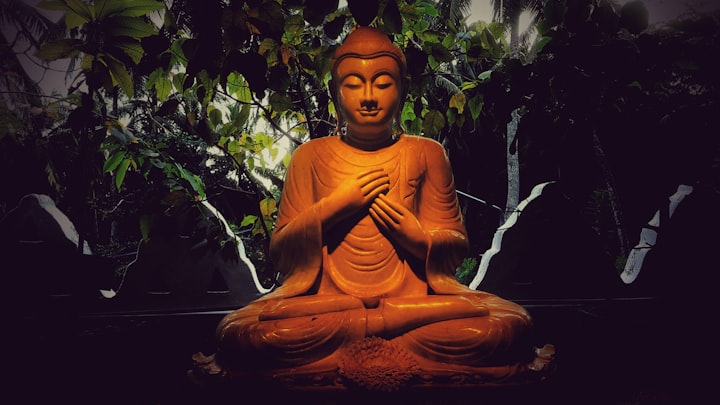How Buddhism honors both compassionate caregiving and celibate monks and nuns.
Meditative mothering?

Buddhist holy people are frequently portrayed as maternally sympathetic, with the unending tolerance of a mother who feeds, cleans and really focuses on kids nonstop. As a matter of fact, the Theravada part of Buddhism holds moms in such high regard that two men among the Buddha's main followers, Sariputta and Mogallana, are supposed to be "like the mother conceiving an offspring" and "the medical caretaker bringing up a kid."
However in Buddhism, as in a few different religions, perspectives on parenthood are mind boggling. Motherlike sympathy is glorified - yet abstinence and religion are as well. By and large, the confidence doesn't have a center philosophy that values marriage and multiplication as focal ideals to be sought after at the expense of otherworldly review and illumination. Nonetheless, as a researcher of orientation and family in Buddhism, I have seen moving perspectives about how otherworldliness and parenthood can be consolidated.
Reimbursing a mother's obligation
Developing appreciation toward conscious creatures is a focal point of Buddhist practice, especially toward older folks. Buddhists are urged to be thankful for the penances guardians make to carry them into the world and raise them. As a matter of fact, inability to reimburse obligations owed to guardians can land one in a domain of misery solely for dissatisfied youngsters, as per one sutra that is many times called the obedient devotion educating.
Buddhists could show worship for moms or motherlike figures in their lives by setting up a feast or offering a gift. All year there are numerous other explicit ways Buddhist kids could respect a parent. In Thailand, for instance, some young men look to reimburse what is known as the "milk obligation" to their moms by briefly taking devout promises and putting in half a month living with priests - a practice intended to show profound regard.
Assuming somebody's mom is as of now not alive, nonetheless, there are as yet numerous ways of coordinating adoring benevolence toward her. One of the most widely recognized ways is to make food contributions, for example, rice balls, at familial holy places, raised areas to the family heredity and such. Similarly as with taking care of a living guardian, the custom is intended to make Buddhists mindful of the penances their folks made to take care of them.
The Buddha's gift
Buddhists generally accept there are numerous potential domains where an individual could pursue demise - some eminent, some terrible. Youngsters can forestall a mother who arrived in damnation from remaining there long by carrying out beneficial things and moving great karma to her. Indeed, even a mother who was renewed in a radiant domain can be supported there by her youngsters' gifts of good karma.
The drawback of the Buddhist sky, notwithstanding, is connection to fine food, drink, clothing and other arousing delights. In numerous legends, the divine beings struggle with seeing the cardinal educating of Buddhism: the transitory idea, all things considered. Anything you desire a greater amount of won't stand the test of time.
As per Buddhist practice, the Buddha's mom, Maya, was fortunate in that she had great karma and turned into a goddess in the afterlife. However, after he had accomplished edification, the obedient Buddha rose to the paradise where Maya dwelled and instructed her that even grand delights fail to measure up to freedom. Legends say he endured three months showing her the most exceptional regulations in the Buddhist group - definitely more confounded than what legends say he showed his dad.
Center versus family
Buddhist Asia, from the western finish of the Silk Street in Turkey toward the eastern end in China, is loaded with ripeness customs and fruitfulness figures. In many pieces of Asia where Buddhism is polished, notwithstanding - particularly in world class ascetic circles - texts about the opportunities and temperances of chastity hold pride of spot.
A lot of Buddhist educating is established in the possibility that everything is fleeting. Subsequently, all longings - including to engage in sexual relations or have a family - are viewed as types of servitude: These desires attach individuals to common objectives as opposed to the way of shrewdness toward nirvana.
In this view, one ought to check sexual cravings similarly as much as greedy. Sex specifically has flowing impacts that make study and reflection troublesome: youngsters, family time and work to help them. Enjoying desire, the Buddha cautions men in a single story, is basically as silly as placing one's penis in the mouth of a venomous snake.
The Buddha's eightfold way requires center - and center is a valuable product, as each parent knows. The Buddha himself passed on his better half and child to look for intelligence through a restrained life. In the wake of accomplishing edification, he got back to his old neighborhood - and climbed to paradise - to show his relatives what he had realized.
Thoughtful mothering
Mentalities toward families and religion shift by culture, nonetheless. One will not hear ripeness put down in Nepal and Japan. In those nations, the people who wear religious robes wed, multiply and serve in sanctuary settings, running Buddhist sanctuaries as acquired privately-run companies that accommodate the requirements of lay Buddhists.
Likewise, present day understandings of Buddhism will generally be more family-accommodating. As opposed to see life as a parent as an impediment, a few contemporary Buddhists consider guardians' work to be profound work. Really focusing on youngsters, for instance, can be a type of reflection, requiring a perceptive however nonjudgmental center likened to rehearsing care. Moms and others who give kid care can encounter seeing things as they truly are, without connection and getting a handle on.
Researchers, for example, Reiko Ohnuma, Vanessa Sasson and Amy Langenberg have shown how the connection among chastity and day to day life is more convoluted than "either/or," and how nurturing and Buddhist qualities converge.
All things considered, Buddhists accept that the authentic Buddha had many previous existences and was not abstinent in every one of them. As a family man, he rehearsed numerous Buddhist excellencies, like generosity, restraint and tolerance. Furthermore, in any event, when chaste, his profound lessons resemble bosom milk, as per Theravada Buddhist practice: "the milk of undying regulation." This position of genuine concern made him an otherworldly mother according to numerous Buddhists - a temperance they try to copy today.






Comments
There are no comments for this story
Be the first to respond and start the conversation.